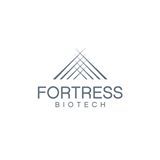预约演示
更新于:2025-05-07

Suzhou NeuPharma Co., Ltd.
更新于:2025-05-07
概览
标签
肿瘤
呼吸系统疾病
其他疾病
小分子化药
疾病领域得分
一眼洞穿机构专注的疾病领域
暂无数据
技术平台
公司药物应用最多的技术
暂无数据
靶点
公司最常开发的靶点
暂无数据
| 排名前五的药物类型 | 数量 |
|---|---|
| 小分子化药 | 5 |
关联
8
项与 苏州润新生物科技有限公司 相关的药物靶点 |
作用机制 BRAF抑制剂 |
在研机构 |
原研机构 |
最高研发阶段临床3期 |
首次获批国家/地区- |
首次获批日期- |
作用机制 EGFR T790M抑制剂 |
原研机构 |
最高研发阶段临床3期 |
首次获批国家/地区- |
首次获批日期- |
20
项与 苏州润新生物科技有限公司 相关的临床试验CTR20243981
RX108-A片在晚期恶性实体肿瘤患者中的安全性、耐受性、药代动力学和初步疗效的I期研究
Ia期:考察RX108-A片多次口服给药在人体内的安全性、耐受性,并确定最大耐受剂量(MTD)或最佳生物学剂量(OBD);
Ib期:考察RX108-A片在人体内的安全性、耐受性,并确定II期研究的推荐给药剂量(RP2D)。
开始日期2024-12-09 |
申办/合作机构 |
CTR20240545
RX608在晚期恶性实体肿瘤患者中的安全性、耐受性、药代动力学和初步疗效的I期研究
剂量递增部分(Ia期):
主要目的:
考察RX608多次给药在人体内的安全性、耐受性,并确定最大耐受剂量(MTD)或最佳生物学剂量(OBD);
次要目的:
初步评价RX608多次给药的药代动力学特征;
初步评估RX608应用于晚期恶性实体肿瘤患者的抗肿瘤疗效。
剂量扩展部分(Ib期):
主要目的:
进一步评估RX608应用于MAPK信号通路驱动基因突变患者中的抗肿瘤疗效;
次要目的:
进一步考察RX608多次给药在人体内的安全性、耐受性,并确定II期研究的推荐给药剂量(RP2D)。
开始日期2024-03-28 |
申办/合作机构 |
CTR20231625
HLX208片在中国健康受试者中食物影响及药物相互作用研究
主要目的:
评价高脂高热量饮食对健康受试者单剂量口服HLX208片的药代动力学影响。
在健康受试者中评价伊曲康唑或利福平胶囊对HLX208片药代动力学的影响。
次要目的: 在健康受试者中评价单次给予HLX208片的安全性,以及与伊曲康唑或利福平胶囊药物联用的安全性。
开始日期2023-07-17 |
申办/合作机构 |
100 项与 苏州润新生物科技有限公司 相关的临床结果
登录后查看更多信息
0 项与 苏州润新生物科技有限公司 相关的专利(医药)
登录后查看更多信息
2
项与 苏州润新生物科技有限公司 相关的文献(医药)2017-07-01·Cancer Research
Abstract 2078: CK-101 (RX518), a mutant-selective inhibitor of EGFR that overcomes T790M-mediated resistance in NSCLC
作者: Qian, Xiangping ; Zhu, Yong-Liang ; Niecestro, Robert M. ; Oliviero, James F. ; Cullen, Edward
Zhongguo Xinyao Zazhi
Predicting nephrotoxicity of drugs using mathematical models
作者: Liu, Jing-ge ; Yao, Guang-tao ; Ye, Zu-guang ; Qian, Xiang-ping ; Zhu, Yong-liang ; Jin, Ruo-min ; Wang, Xin-zhou
31
项与 苏州润新生物科技有限公司 相关的新闻(医药)2024-09-29
·医药观澜
▎药明康德内容团队报道
根据中国国家药监局药品审评中心(CDE)官网以及公开资料,本周(9月23日~9月29日),有11款1类创新药首次在中国获得临床试验默示许可(IND),药物类型包括了多款创新小分子药物如新一代EGFR-TKI、HDACs抑制剂、泛KRAS抑制剂,以及通用现货型NK细胞产品等细胞疗法。这些产品拟用于治疗各类实体肿瘤以及特发性肺纤维化等疾病。本文将根据公开资料对这些产品进行介绍。
图片来源:123RF
艾力斯医药:AST2303片
作用机制:新一代EGFR-TKI
适应症:非小细胞肺癌
艾力斯医药申报的AST2303片(ABK3376片)获批临床,拟用于携带EGFR C797S突变的晚期非小细胞肺癌成人患者。公开资料显示,AST2303是一款高选择性、可入脑的新一代EGFR口服小分子抑制剂,可高效抑制三代EGFR-TKI耐药后产生的C797S突变。该产品还具有高效穿透血脑屏障的特性,可在中枢神经系统(CNS)获得有效的药物暴露,有望用于治疗或预防非小细胞肺癌的CNS转移。2023年10月,艾力斯医药与和誉医药达成一项约1.879亿美元的合作,获得该产品在中国的研究、开发、制造、使用以及销售的独家许可。
赛德特生物:SDTM001注射液
作用机制:肿瘤特异性T细胞
适应症:非小细胞肺癌
赛德特生物自主研发的SDTM001细胞注射液获批临床,拟用于根治术后驱动基因EGFR突变阴性及PD-L1表达阴性的非小细胞肺癌。根据赛德特生物新闻稿介绍,SDTM001注射液是以体内动态监视肿瘤抗原变化的抗原呈递细胞作为切入点,在体外激活制备的非基因改构肿瘤特异性T细胞,具备较强的肿瘤特异性杀伤能力。
四川好医生攀西药业:GD-N1801外用溶液
作用机制:化药
适应症:慢性难愈合创面
好医生攀西药业申报的1类新药GD-N1801外用溶液获批临床,拟用于各类慢性难愈合创面(包括糖尿病足溃疡、压疮)及新鲜创面(包括外伤、供皮创面、手术伤等)。目前尚未从公开渠道查询到该产品的作用机制,从受理号可知这是一款化药。
君实生物:WJ47156片
作用机制:HDACs抑制剂
适应症:晚期恶性肿瘤
君实生物申报的WJ47156片获批临床,拟开发治疗晚期恶性肿瘤。根据君实生物公告介绍,WJ47156片(项目代号JS125)是其与微境生物医药合作开发的1类创新药,为一款靶向组蛋白去乙酰化酶(HDACs)抑制剂,属于表观遗传调控剂类药物。该产品可选择性对HDAC1、HDAC2、HDAC3产生抑制,并通过诱导细胞周期阻滞、抑制血管生成、调节免疫反应和促进癌症细胞衰老凋亡等来发挥抑制肿瘤作用,达到肿瘤治疗目的。
加科思:JAB-23E73片
作用机制:泛KRAS抑制剂
适应症:KRAS基因改变的晚期实体瘤
加科思1类新药JAB-23E73片获批临床,拟开发治疗KRAS基因改变的晚期实体瘤。公开资料显示,这是加科思自主研发的泛KRAS(pan-KRAS)抑制剂。该产品近日刚刚在美国获得IND批准。根据加科思公开资料,该产品可同时抑制活性及非活性状态的KRAS,对HRAS、NRAS无明显抑制。作为口服KRAS抑制剂,JAB-23E73的临床前数据展现了良好的药代动力学特性。
英百瑞生物:IBR900细胞注射液
作用机制:通用现货型NK细胞产品
适应症:B细胞淋巴瘤
英百瑞申报的IBR900细胞注射液获批临床,拟开发治疗B细胞淋巴瘤。根据英百瑞新闻稿,IBR900注射液是其自主研发的一款同种异体健康供者PBMC来源的、非基因改造的、具有良好杀伤肿瘤细胞能力的通用现货型NK细胞产品。该产品可通过NK细胞直接杀伤作用及分泌细胞因子、诱导凋亡等途径对血液瘤或实体瘤进行杀伤,同时也可以通过ADCC效应,联合单克隆抗体对相应靶点阳性的肿瘤细胞进行杀伤。
勃林格殷格翰:BI 1839100片
作用机制:化药
适应症:特发性和进展性肺纤维化
勃林格殷格翰申报的1类新药BI 1839100片获批临床,适用于作为标准治疗(SoC)的附加疗法或作为单药治疗,用于治疗伴有临床意义的咳嗽的特发性肺纤维化(IPF)和进展性肺纤维化,目的是减少咳嗽和抑制肺纤维化进展。目前尚未从公开渠道查询到该产品的作用机制。根据ClinicalTrials官网,研究人员正在开展一项2期临床研究,旨在评估BI 1839100是否能改善特发性肺纤维化或进行性肺纤维化患者咳嗽。
正大天晴:TQB2252注射液
作用机制:生物制品1类新药
适应症:恶性肿瘤
正大天晴申报的TQB2252注射液获批临床,拟用于晚期恶性肿瘤。目前尚未从公开渠道查询到该产品的具体作用机制。从受理号可知这是一款生物制品1类新药。
珃诺生物:RNK08954片
作用机制:化药
适应症:KRAS G12D突变晚期实体瘤
珃诺生物申报的RNK08954片获批临床,拟开发用于KRAS G12D突变晚期实体瘤。目前尚未从公开渠道查询到该产品的具体作用机制,从受理号可知这是一款化药新药。公开资料显示,珃诺生物是一家专注于小分子创新药研发的生物医药公司,正在基于靶向蛋白降解(CHAMP)平台开发新型疗法,用于治疗肿瘤和其他重大疾病。
润新生物:RX108-A片
作用机制:化药
适应症:晚期恶性实体瘤
润新生物申报的1类新药RX108-A片获批临床,拟开发治疗晚期恶性实体瘤。目前尚未从公开渠道查询到该产品的作用机制,从受理号可知这是一款化药新药。
星盛新辉:XS-04片
作用机制:IRAK4/BTK双激酶抑制剂
适应症:血液系统恶性肿瘤
星盛新辉医药申报的XS-04片获批临床,拟开发治疗血液系统恶性肿瘤。XS-04是星盛新辉自主开发的一款小分子抗肿瘤药物,为一款IRAK4/BTK双激酶抑制剂,它能同时抑制IRAK4和BTK两种激酶。在2023年的美国癌症研究协会(AACR)年会上,研究人员口头报告了该产品的临床前研究数据,研究表明该产品有望解决共价型BTK抑制剂长期用药后耐药突变的问题,在恶性血液瘤领域,特别是针对BTK抑制剂耐药方面的临床应用非常值得期待。
参考资料:
[1]中国国家药监局药品审评中心(CDE)官网. Retrieved Sep 29,2024, From https://www.cde.org.cn/main/xxgk/listpage/4b5255eb0a84820cef4ca3e8b6bbe20c
[2]各公司官网及公开资料
本文来自药明康德内容团队,欢迎个人转发至朋友圈,谢绝媒体或机构未经授权以任何形式转载至其他平台。转载授权或其他合作需求,请联系wuxi_media@wuxiapptec.com。
免责声明:药明康德内容团队专注介绍全球生物医药健康研究进展。本文仅作信息交流之目的,文中观点不代表药明康德立场,亦不代表药明康德支持或反对文中观点。本文也不是治疗方案推荐。如需获得治疗方案指导,请前往正规医院就诊。
临床申请申请上市细胞疗法ASH会议
2024-08-11
随着全球人口老龄化和疾病模式的变化,对创新药物的需求不断增加。患者和医疗保健提供者正在寻求更有效、更安全、更个性化的治疗方案,这推动了对创新药的强烈需求。不同国家和地区的监管机构,对创新药物的审评审批标准和流程有着不同的要求。国际人用药品注册技术协调会(ICH)制定了一系列关于药品研发、生产和监管的国际指南,被广泛认为是创新药物研发和临床质量控制的国际标准。
近年来为了更快与国际市场接轨,增强患者多样性,增加公司收入来源的多元化,中国的生物技术公司纷纷寻求产品“出海”之路。为此,国际创新药临床质量需要适应这些多样化的监管环境,确保药物在全球范围内的合规性和可接受性。
8月29日(周四)下午,佰傲谷BioValley联合赛默飞世尔科技,举办创新药临床试验国际化策略私享沙龙—苏州站,以期帮助更多新药蛟龙入海,走向世界。
活动信息
活动时间:2024年8月29日 13:30-20:00
活动地点:苏州工业园区星湖街218号B2栋一楼—生物医药产业综合服务中心
活动规模:40位药企研发及管理人员(闭门会,需审核)
主办单位:赛默飞世尔科技、佰傲谷BioValley
拟邀参会:博瑞生物、盛禾生物、丹诺医药、清普生物、迈诺威医药、宁丹新药、海融医药、勤浩医药、润佳医药、星锐医药、映恩生物、拜恩泰科、苏州玉森新药开发有限公司、新元素医药、奥赛康药业、开拓药业、征祥医药、韬略生物、鑫康合生物医药、苏州信诺维医药、微超生物、浦合医药、康宁杰瑞、中科健康、南京泛太化工医药研究所、坤力生物、峻德生物、亚虹医药、吴中医药、润新生物、江苏威凯尔、阿思科力、亚盛医药、康乃德生物医药、兴盟生物、典晶生物、宜联生物等企业高级经理及以上……
扫码报名(需审核)
日程安排
创新药临床试验国际化策略私享沙龙·苏州站
2024年8月29日(周四)下午
13:30-14:00
活动签到
14:00-14:10
主持开场
14:10-14:40
主题演讲1:2024年医药投资趋势---中国创新药出海机遇与挑战
王海蛟 高特佳 副总经理
14:40-15:10
主题演讲2:生物药的临床质量控制原则与经验分享(拟)
顾明洋 昂科免疫 QA总监&总经理助理
15:10-15:40
主题演讲3:自体细胞治疗产品海外落地初探分享
刘超 禾沐基因 CEO
15:40-16:00
茶歇、休息交流
16:00-16:30
主题演讲4:以国际经验深耕中国,助力生物医药研发创新和国际化
神秘大咖
16:30-17:00
主题演讲5:多国家多地区临床试验中的操作和项目管理趋势及亮点
施维维 赛默飞Patheon制药服务 临床供应链中国质量负责人
17:00-17:40
圆桌讨论:创新药出海的底层逻辑探讨
讨论嘉宾:
王海蛟 高特佳 副总经理
顾明洋 昂科免疫 QA总监&总经理助理
刘 超 禾沐基因 CEO
施维维 赛默飞Patheon制药服务 临床供应链中国质量负责人
其它嘉宾邀请中....
17:40-17:50
总结、合影
17:50-20:00
冷餐会
联系我们
本次活动为报名审核制,请仔细填写报名信息临床、研发部门优先录取。截止目前,20位药企管理人员已加盟~
扫码下方二维码报名
审核成功后将以短信和邮件通知
审核未通过者不予参加活动
如您有任何问题,欢迎联系小助手:Abby Jiang 18217659261
点击此处“阅读全文”查看更多内容
细胞疗法ASH会议临床研究申请上市医药出海
2024-07-21
·药时代
(收集周期:7.15-7.19,国内部分为首次申请临床、首次申请上市、首次批准上市的创新药)
国内创新药IND汇总
1、艾力斯:AST2303片
作用机制:EGFR抑制剂
适应症:非小细胞肺癌
7月16日,艾力斯的AST2303片的临床试验申请(IND)获CDE受理。AST2303(ABK3376)是和誉医药开发的具有自主知识产权的高选择性、可入脑的新一代EGFR口服小分子抑制剂,可高效抑制三代EGFR-TKI耐药后产生的C797S突变。2023年3月,和誉生物与艾力斯医药签署许可协议,授予艾力斯ABK3376在中国(中国大陆、香港、澳门和台湾地区)区域研究、开发、制造、使用以及销售的独家许可;艾力斯有权在达到行权条件时选择行使海外权益,将授权区域扩大至全球范围。根据协议条款,艾力斯向和誉医药支付最高不超过18,790万美元的首付款、开发及销售里程碑付款以及相应比例净销售额的许可提成费。
临床前研究结果显示:(1)ABK3376具有强大的肿瘤细胞抑制和杀伤活性,而且在荷瘤实验模型动物体内显示了抑制并缩小肿瘤的能力。(2)还表现出了对野生型EGFR较高的选择性,提示ABK3376将具有较好的安全性。(3)具有高效穿透血脑屏障的特性,可在中枢神经系统获得有效的药物暴露,用于治疗或预防非小细胞肺癌的中枢神经系统转移。:
2、汇宇制药:注射用HY07121
作用机制:靶向PD1/IL-15/TIGIT三抗
适应症:实体瘤
7月16日,汇宇制药的注射用HY07121的IND获CDE受理。HY07121是一款靶向PD1/IL-15/TIGIT的三抗,通过同时阻断PD-1和TIGIT的抑制作用,并利用IL-15的激活作用,还能够诱导 stem-like T 细胞及 NKT 细胞相关基因的表达上调,促进 CD8+T 细胞及NK 细胞在瘤内的扩增和浸润。临床前体外药效学研究表明,HY07121通过特殊设计获得的多抗分子在等摩尔数情况下,刺激人免疫细胞因子 IFN-γ
分泌水平比三个靶点联合用药表现出更优的潜力。体内药效学研究结果进一步证实, HY07121 对 PD-1 抗体耐药的肿瘤模型仍然具备良好的药效。
3、百利药业:GNC-077多特异性抗体注射液
作用机制:——
适应症:实体瘤
7月17日,百利药业的GNC-077多特异性抗体注射液的IND获CDE受理。GNC-077是一款创新多特异性抗体分子,有靶向T细胞CD3及靶向T细胞免疫检查点的抗体结构域,以及靶向肿瘤抗原的抗体结构域。GNC-077可有效诱导naïve T细胞的激活、分化、增殖,可引导激活的T细胞靶向杀伤肿瘤抗原阳性的肿瘤细胞。体内药效显示,GNC-077在多种实体瘤中均有显著的「靶向免疫」肿瘤杀伤活性。
3、瑞宏迪医药:RGL-193注射液
作用机制:——
适应症:帕金森
7月17日,瑞宏迪医药的RGL-193注射液的IND获CDE受理。RGL-193是由瑞宏迪医药(恒瑞医药旗下企业)自主研发、国内首个应用在帕金森病患者的AAV双基因药物,采用立体定向技术注入患者脑内,可以提高左旋多巴的转化效率,同时还起到保护和修复受损多巴胺能神经元的作用,具有潜在的延缓病情进展和减少口服抗帕金森病药量的效果。该药物已在一项研究者发起的临床研究(RGL-193-001)中完成首例帕金森病患者手术给药。
4、瑞风生物:RM-101注射液
作用机制:——
适应症:II型Usher综合征
7月17日,瑞风生物的RM-101注射液的IND获CDE受理。RM-101是一种AAV病毒递送的基因修饰疗法,通过视网膜下腔注射可特异感染感光细胞,诱导USH2A外显子13跳跃,产生截短的具有生物功能的Usherin蛋白,维持感光细胞正常的形态和功能。基于AAV病毒可以在体内长期表达的特性,RM-101有望实现一次性给药,长期有效维持II型Usher综合征患者的视力。实验结果表明,在小鼠模型中注射RM-101可诱导高达90%的USH2A外显子13跳跃,效果持久稳定,对视网膜无影响;在非人灵长类视网膜下腔注射RM-101可介导更高水平的靶外显子跳跃,效果稳定且观察期内眼部无异常;与ProQR Therapeutic公司的QR-421a及Editas Medicine公司EDIT-102等竞品相比,RM-101在有效性、持久性和安全性方面均处于领先地位。
5、博创/天广实:MBS314皮下注射液
作用机制:靶向CD3/BCMA/GPRC5D三抗
适应症:多发性骨髓瘤
7月17日,博创/天广实合作开的MBS314皮下注射液的临床试验申请获CDE受理。MBS314是一款靶向CD3/BCMA/GPRC5D的全新机制的三特异性抗体,用于多发性骨髓瘤的治疗。MBS314具有差异化的CD3结合表位,能够实现与T细胞低亲和力但持久激活杀伤效果,具有更好的安全性;同时高亲和力结合BCMA和GPRC5D,可以克服病人体内肿瘤细胞BCMA和GPRC5D表达的异质性问题,可以有效的杀伤清除肿瘤病灶,具有更好的广谱性和有效性。临床前研究数据显示,在病人原代肿瘤细胞离体杀伤和小鼠体内肿瘤生长实验中,MBS314比CD3/BCMA以及CD3/GPRC5D双抗有更好的肿瘤杀伤效果,有望成为多发性骨髓瘤治疗中同类最佳产品。
6、润新生物:RX108-A片
作用机制:——
适应症:肿瘤
7月18日,润新生物的RX108-A片的临床试验申请获CDE受理。RX108是全新的小分子Na+/K+-ATP酶抑制剂,通过抑制Na+/K+-ATP酶,通过几种信号途径交叉作用,破坏肿瘤细胞的细胞膜结构,从而引起肿瘤细胞周期阻滞、自噬和凋亡。该药物具有“一靶多点”的作用机制,可通过多种途径发挥抗肿瘤作用。
7、百济神州:注射用BGB-C354
作用机制:靶向B7-H3 ADC
适应症:肿瘤
7月18日,百济神州的注射用BGB-C354的临床试验申请获CDE受理。BGB-C354是一款靶向B7-H3的体偶联药物(ADC),拟开发治疗肺癌和头颈部鳞状细胞癌(HNSCC)。B7-H3(又称CD276)是一种Ⅰ型跨膜糖蛋白,属于B7超家族中的一员,在单核细胞和粒细胞及人体正常组织中均无表达,而在一些树突状细胞、T 细胞、自然杀伤(NK) 细胞和B 细胞上有表达是近年来新发现的免疫检查点。该靶点不仅可通过抑制免疫系统促成肿瘤细胞的免疫逃逸,还可通过一些非免疫途径介导肿瘤的转移、耐药、血管生成从而促进癌症进展。
今年6月,公司登记了一项1期临床研究,评估BGB-C354单独或与抗PD-1抗体替雷利珠单抗联合用于晚期实体瘤患者的安全性、耐受性、药代动力学和初步抗肿瘤活性。
8、艺妙医疗:IM96嵌合抗原受体T细胞注射液
作用机制:靶向GC-C CAR-T
适应症:结直肠癌
7月18日,艺妙医疗的IM96嵌合抗原受体T细胞注射液的临床试验申请获CDE受理。IM96是靶向鸟苷酸环化酶GUCY2C(GCC)的自体CAR-T产品,GCC在多种肠化生的胃肠道恶性肿瘤细胞表面高表达,其中结直肠癌患者的表达率高达80%,且结直肠癌发生发展的各阶段均有GCC表达,而该靶点在正常组织中限制表达于小肠和结肠上皮细胞紧密连接处,是一个较理想的实体瘤靶点。此前披露的一项开放标签、剂量递增和剂量扩展的I期研究显示,在接受≥3线治疗失败的GCC阳性的晚期转移性结直肠癌(mCRC)患者中,疾病控制率(DCR)达到了73.7%,客观缓解率(ORR)达到26.3%。在DL3和DL4组中,ORR达到38.5%,中位无进展生存期(mPFS)为7个月,其中肝转移患者的ORR为33.3%以及mPFS为7个月,所有响应的患者在6个月内均未出现疾病进展。在高剂量组中,肿瘤组织GCC阳性率大于20%的患者人群显示出ORR为50%和mPFS为10个月。
在安全性上,仅有1例(5.0%)患者出现了神经毒性和≥3级的细胞因子释放综合征(CRS)。16例(80.0%)患者出现了1~2级CRS,并伴随白细胞介素-6的显著升高。此外,14例(70.0%)患者出现了1~3级皮疹,11例(55.0%)患者发生了3级腹泻,而7例(35.0%)患者出现了1~3级口腔黏膜炎。研究期间,所有患者均未出现剂量限制性毒性,且未达到最大耐受剂量。
国内创新药NDA汇总
1、晖致/Mylan:吸入用雷芬那辛溶液
作用机制:M3 毒蕈碱受体拮抗剂
适应症:慢性阻塞性肺病
7月16日,晖致/Mylan的吸入用雷芬那辛溶液的新药上市申请(NDA)获CDE受理。雷芬那辛(revefenacin)是一种长效毒蕈碱拮抗剂,通过与支气管平滑肌上的 M3 毒蕈碱受体结合,抑制副交感神经末端释放乙酰胆碱所造成的气管收缩,临床主要用于慢性阻塞性肺病的维持治疗,包括慢性支气管炎、肺气肿伴随呼吸困难的维持治疗及急性发作的预防。2018年11月,revefenacin治疗慢性阻塞性肺病的适应症获FDA批准,是首个仅需一天给药一次用于COPD患者维持治疗雾化支气管扩张剂。
2、安进/优时比:罗莫佐单抗注射液
作用机制:靶向SOST抗体
适应症:骨质疏松
7月16日,安进/优时比开发的罗莫佐单抗注射液的上市申请获受理。罗莫佐单抗(Romosozumab)是一种靶向硬化蛋白(SOST)的人源化抗体,可以抑制SOST的活性发挥作用,在加速骨形成的同时减少骨吸收,增加骨密度。该药物给药方式为每月一次,共计12个月。该药物是全球首款抗硬骨抑素产品,已于2019 年在美国、日本及欧盟被批准用于高骨折风险的绝经后女性骨质疏松的治疗。一项3 期临床研究显示,经过12 个月治疗后,Romosozumab 组与安慰剂组相比,新的椎体骨折风险降低73%,临床骨折风险降低36%。另一项针对绝经后骨质疏松患者的3 期研究将每月皮下注射Romosozumab(210mg)与每周口服阿仑膦酸钠(70mg)进行对比。经过12 个月的治疗后,Romosozumab 将椎体骨折风险降低37%,临床骨折风险降低28%,非椎体骨折风险降低26%。
除此以外,一项针对绝经后骨质疏松症患者的随机开放标签的3 期研究中,Romosozumab 同样显示了优于特立帕肽的治疗效果。436 名服用阿仑膦酸钠至少3 年的绝经后女性随机接受Romosozumab(210mg/月)或特立帕肽(20μg/天)。结果显示:(1)在12 个月的时间点,接受Evenity的患者全髋骨密度自基线增幅显著优于特立帕肽。(2)接受Romosozumab治疗的患者中髋部体积骨矿物质含量增加,但接受特立帕肽治疗的患者则无变化。有限元分析也显示Romosozumab治疗组的髋部强度获得更大增益。
3、先声/ Idorsia:盐酸达利雷生片
作用机制:双食欲素受体拮抗剂
适应症:失眠
7月16日,先声药业与Idorsia合作开发的盐酸达利雷生片的NDA获CDE受理。达利雷生(Daridorexant)是一种双食欲素受体拮抗剂,同时作用于食欲素1 型受体和食欲素2 型受体且作用效能相当。与传统镇静催眠药物(如苯二氮䓬类药物)通过镇静大脑来促进睡眠的疗法完全不同,达利雷生通过阻断食欲素神经肽(食欲素A 和食欲素B)与其受体的结合,从而降低觉醒驱动,促使睡眠发生,并且不改变患者的睡眠结构。
发表于《柳叶刀神经病学》的海外III 期临床数据显示,在接受1 个月、3 个月治疗后,达利雷生较安慰剂显著改善了患者入睡、睡眠维持及自我报告的总睡眠时间,不改变睡眠结构,且未发现依赖性、反跳性失眠、戒断症状和药物滥用证据,显著区分于传统镇静催眠药苯二氮䓬类药物报告的结果。
4、正大天晴:库莫西利胶囊
作用机制:CDK2/4/6抑制剂
适应症:乳腺癌
7月19日,正大天晴的库莫西利胶囊的NDA获CDE受理,用于既往内分泌经治的激素受体(HR)阳性、人表皮生长因子受体2(HER2)阴性局部晚期或转移性乳腺癌的治疗。库莫西利(Culmerciclib,TQB3616)是一种新型周期蛋白依赖性激酶2、4和6(CDK2/4/6)抑制剂,对CDK2、CDK4、CDK6激酶有不同程度的抑制效果,并且对CDK4激酶具有较强的抑制能力。肿瘤细胞增殖抑制情况以及多个小鼠移植瘤模型研究结果,均验证TQB3616具有抗肿瘤活性。此外,与Abemaciclib相比,TQB3616对CDK2的抑制作用进一步提升,其增强的CDK2和CDK4抑制活性可能有助于在临床上克服目前CDK4/6抑制剂的耐药性问题。
国内创新药上市获批
1、优时比:比奇珠单抗
作用机制:抗IL-17A/F单抗
适应症:强直性脊柱炎
7月19日,优时比的比奇珠单抗的上市申请获得国家药监局(NMPA)批准,用于常规治疗疗效不佳或不耐受的活动性强直性脊柱炎(AS,放射学阳性中轴型脊柱关节炎)成人患者。比奇珠单抗(bimekizumab)是一款靶向两种细胞因子IL-17A 和IL-17F的双特异性单克隆抗体,由于二者都参与银屑病的炎症过程,因此通过靶向两个靶点的疗效相较于仅针对IL-17A 的药物更突出。该药物最早曾于2021年8月在欧盟获批上市,用于治疗成人中重度斑块状银屑病。BE MOBILE研究表明,比奇珠单抗在首次用药后1周内即可显著缓解疼痛和晨僵症状。16周后,患者的病情显著改善,接近一半的患者达到了显著的病情缓解标准,52周时这一比例增加到60%。MAIC研究(间接对比)显示,对于强直性脊柱炎患者,比奇珠单抗的疗效优于现有常用生物治疗方法。此外,使用比奇珠单抗治疗2周内,炎症标志物显著降低。16周后,炎症水平降低了60%,展示了强效的抗炎和延缓疾病进展的能力。同时,比奇珠单抗显著改善了脊柱炎症和结构损伤,有望进一步控制疾病进展。
全球新药III期临床汇总
封面图来源:123rf
版权声明/免责声明
本文为授权转载文章。
本文仅作信息交流之目的,不提供任何商用、医用、投资用建议。
文中图片、视频、字体、音乐等素材或为药时代购买的授权正版作品,或来自微信公共图片库,或取自公司官网/网络,部分素材根据CC0协议使用,版权归拥有者,药时代尽力注明来源。
如有任何问题,请与我们联系。
衷心感谢!
药时代官方网站:www.drugtimes.cn
联系方式:
电话:13651980212
微信:27674131
邮箱:contact@drugtimes.cn
“FIC” 血友病疗法再突破!赛诺菲野望兑现
显著延长rPFS!达罗他胺III期临床达主要终点
世界肝炎日特别活动:人源动力,肝研新篇
罗氏双抗再创眼科“药王”
许田:从罕见病研究到批量转化数十亿美元项目,我和同学是如何做到的?
每天有几千人在这里欢聚!~
临床申请申请上市免疫疗法
100 项与 苏州润新生物科技有限公司 相关的药物交易
登录后查看更多信息
100 项与 苏州润新生物科技有限公司 相关的转化医学
登录后查看更多信息
组织架构
使用我们的机构树数据加速您的研究。
登录
或

管线布局
2026年03月01日管线快照
管线布局中药物为当前组织机构及其子机构作为药物机构进行统计,早期临床1期并入临床1期,临床1/2期并入临床2期,临床2/3期并入临床3期
临床1期
2
2
临床2期
临床3期
1
3
其他
登录后查看更多信息
当前项目
| 药物(靶点) | 适应症 | 全球最高研发状态 |
|---|---|---|
Olafertinib ( EGFR T790M ) | 非小细胞肺癌 更多 | 临床3期 |
Uplarafenib ( BRAF ) | BRAF V600 突变胶质母细胞瘤 更多 | 临床2期 |
RX-108 ( Na/K-ATPase ) | 晚期肝细胞癌 更多 | 临床2期 |
RX608 | 晚期恶性实体瘤 更多 | 临床1期 |
RX108-A ( Na/K-ATPase ) | 晚期恶性实体瘤 更多 | 临床1期 |
登录后查看更多信息
药物交易
使用我们的药物交易数据加速您的研究。
登录
或

转化医学
使用我们的转化医学数据加速您的研究。
登录
或

营收
使用 Synapse 探索超过 36 万个组织的财务状况。
登录
或

科研基金(NIH)
访问超过 200 万项资助和基金信息,以提升您的研究之旅。
登录
或

投资
深入了解从初创企业到成熟企业的最新公司投资动态。
登录
或

融资
发掘融资趋势以验证和推进您的投资机会。
登录
或

生物医药百科问答
全新生物医药AI Agent 覆盖科研全链路,让突破性发现快人一步
立即开始免费试用!
智慧芽新药情报库是智慧芽专为生命科学人士构建的基于AI的创新药情报平台,助您全方位提升您的研发与决策效率。
立即开始数据试用!
智慧芽新药库数据也通过智慧芽数据服务平台,以API或者数据包形式对外开放,助您更加充分利用智慧芽新药情报信息。
生物序列数据库
生物药研发创新
免费使用
化学结构数据库
小分子化药研发创新
免费使用



